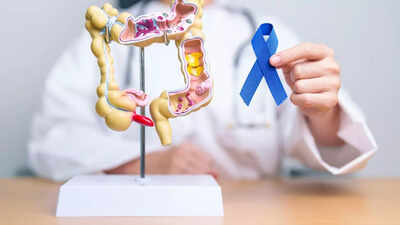Irritable Bowel Syndrome (IBS) and colon cancer both affect the digestive system and can present with similar symptoms like abdominal pain, bloating, and changes in bowel movements. However, they are fundamentally different conditions. IBS is a chronic but non-life-threatening disorder that affects how your gut functions, while colon cancer is a serious disease caused by abnormal cell growth in the colon or rectum. Mistaking one for the other can delay the correct treatment, so recognising the key differences is essential for early diagnosis and better outcomes.
What causes colon cancer and Irritable Bowel Syndrome (IBS)?
IBS is considered a functional gastrointestinal disorder. This means it doesn’t cause visible damage to the colon but affects how the bowel muscles and nerves work. Common triggers include stress, anxiety, food intolerances (like dairy or gluten), infections, or hormonal fluctuations. The exact cause is unknown, but it often involves a miscommunication between the brain and the gut.Colon cancer, on the other hand, is caused by genetic mutations that lead to uncontrolled cell growth. It usually starts as small, non-cancerous polyps in the colon lining, which may turn malignant over time. Risk factors include age (especially over 45), a diet high in red or processed meats, a sedentary lifestyle, smoking, alcohol use, family history of colorectal cancer, and inflammatory bowel diseases like ulcerative colitis or Crohn’s disease.
IBS vs colon cancer symptoms : How patterns and triggers differ
IBS symptoms tend to be long-lasting and occur in cycles. People often experience abdominal cramps, bloating, excess gas, and alternating bouts of diarrhoea and constipation. These symptoms may be relieved after a bowel movement and often worsen with stress or certain foods. Despite being uncomfortable, IBS doesn’t lead to serious physical damage or complications.Colon cancer symptoms tend to be more subtle at first and become more noticeable as the tumour grows. Warning signs include persistent changes in bowel habits (such as diarrhoea, constipation, or narrowing of stools that lasts more than a few days), rectal bleeding or blood in the stool, unexplained weight loss, and constant fatigue. Unlike IBS, these symptoms tend to worsen over time and aren’t related to food or stress.
Abdominal pain in IBS vs colon cancer: Location, relief, and intensity
In IBS, abdominal pain is usually cramp-like and often occurs in the lower belly. It tends to be relieved or at least reduced after passing gas or having a bowel movement. The pain can fluctuate throughout the day and is often associated with a sense of urgency or incomplete evacuation.Colon cancer pain may not appear until the cancer has progressed. It can feel like a persistent ache or pressure in the abdomen or rectum. This pain typically doesn’t go away after using the toilet and may be accompanied by a feeling of fullness, especially if a tumour is blocking part of the bowel.
Fatigue and weight loss: Why they’re red flags for colon cancer, not IBS
One major difference between IBS and colon cancer is the presence of unexplained weight loss and chronic fatigue. In IBS, weight tends to remain stable unless the person is avoiding too many foods or eating very little due to symptom fears. Fatigue may occur due to poor sleep or stress, but it is not a direct symptom.In contrast, unintentional weight loss and fatigue are classic signs of colon cancer, especially when combined with other symptoms. Cancer cells consume a lot of energy and interfere with normal body functions, leaving you feeling tired and weak. If you’re losing weight without trying and feel constantly drained, it’s a red flag that should not be ignored.
Blood in stool: A rare sign in IBS but a serious symptom in colon cancer
Blood in the stool is uncommon in IBS unless there are haemorrhoids present. With IBS alone, you’re unlikely to see red or black-coloured stool. However, colon cancer often causes bleeding, especially if the tumour irritates or erodes the bowel wall. You may notice bright red blood on the toilet paper, in the bowl, or darker, tarry stools, which suggest bleeding from higher up in the colon. This is one of the most critical symptoms that calls for immediate medical evaluation.If you’ve had IBS symptoms for years and your pattern hasn’t changed, it’s usually manageable with diet, stress management, and medications. However, if you’re over 45 or notice a sudden shift in symptoms, such as new-onset constipation, persistent diarrhoea, rectal bleeding, or unintended weight loss, you should see a doctor right away. A colonoscopy or other tests may be needed to rule out colon cancer. Early detection greatly improves survival rates, making timely evaluation essential.While IBS and colon cancer can share similar symptoms like bloating and bowel habit changes, they differ significantly in cause, severity, and long-term impact. IBS is usually manageable and non-life-threatening, whereas colon cancer requires prompt diagnosis and treatment. Watch out for red flags like rectal bleeding, unexplained weight loss, and fatigue, especially if you’re over 45. If your usual IBS symptoms suddenly change or worsen, consult a doctor without delay. Early detection can be life-saving.Also Read: Eating fries frequently may raise your risk of type 2 diabetes: Study






